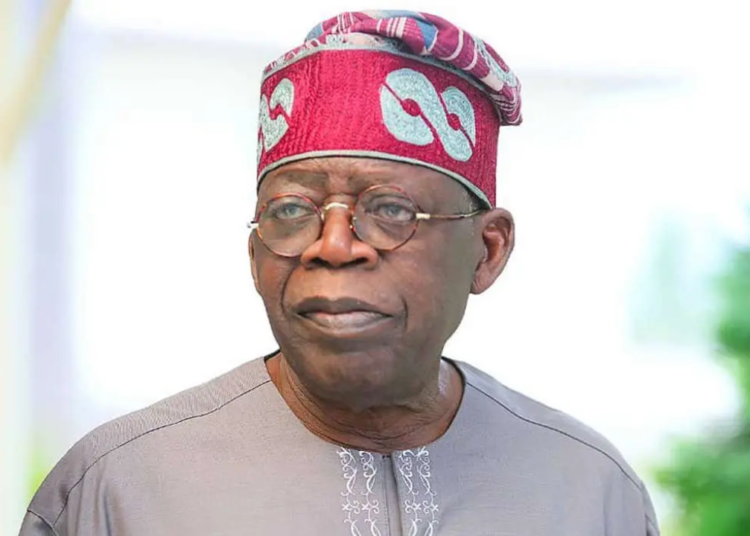The presidential campaign leading up to the 1999 elections in Nigeria has been characterised as the most toxic and divisive in the country’s history.
Even after the winner was announced, the atmosphere of toxicity persisted, particularly on social media platforms.
Numerous individuals swore and vowed that Bola Tinubu would never be inaugurated as President. Even religious leaders, influenced by partisan interests, claimed to receive divine messages and prophesied that Tinubu would not assume office. One religious leader went as far as predicting that Tinubu would be arrested by the military on the morning of May 29.
Nigerians anxiously awaited the unfolding events on May 29, anticipating a dramatic spectacle. Enhanced security measures were put in place around the Eagles Square, the venue of the inauguration. As early as 8 a.m., a multitude of people started gathering at the venue.
Around 10 a.m., Bola Tinubu and his wife arrived at the Eagles Square, likely causing the prophet and his followers to hope for their misguided predictions to come true. Soon after, the former President, Muhammadu Buhari, also arrived at the venue. Without delay, the swearing-in ceremony commenced. Vice President Kashim Shettima was the first to take the oath, followed promptly by Tinubu.
After the ceremonial lowering of the flags and raising of the new commander-in-chief’s standard, President Buhari promptly left the Eagles Square, heading straight to his country home in Daura via the airport.
The ceremony continued as the newly inaugurated President Tinubu inspected a guard of honor. Subsequently, he returned to the State Box to greet former heads of state, foreign presidents, governors, elder statesmen, business figures, and family members.
A splendid military parade followed, featuring the impressive display of fighter planes by the air force.
President Tinubu then delivered his inaugural speech, famously declaring, “The subsidy is gone.”
Following the speech, a man attempted to approach the podium where the President stood, holding an envelope. However, security officials swiftly apprehended and arrested him.
The remainder of the event proceeded smoothly, with the new President hosting the invited guests to a lunch at the State House. Later in the evening, an inaugural ball was held, allowing many Nigerians to witness a different side of their first family. First Lady Remi Tinubu captivated attendees with her impressive dancing skills.
The following day, Tuesday afternoon, President Tinubu officially began work at the Presidential Villa.
His convoy arrived at the State House precisely at 2:35 p.m., sparking heightened anticipation and curiosity from the public.
Upon his arrival, President Tinubu briefly paused at the entrance to participate in a guard of honor, adding a touch of formality to the momentous occasion.
Prominent figures present to welcome the President included Vice President Kashim Shettima, Speaker of the House of Representatives Femi Gbajabiamila, Governor of the Central Bank of Nigeria Godwin Emefiele, Group Chief Executive Officer (GCEO) of NNPC Limited Mallam Mele Kyari, State House Permanent Secretary Tijani Umar, as well as Dele Alake and James Faleke.
Similarly, Vice President Kashim Shettima assumed office on Tuesday.
During a discussion with State House correspondents, Shettima expressed his unwavering commitment to supporting President Tinubu in redefining the concept of modern governance. As a former governor of Borno State known for his dedication to public service, Shettima shared his vision for a Nigeria that every black person in the world could take pride in.
Drawing inspiration from the late John F. Kennedy, Shettima emphasized the weight of expectation resting on the shoulders of this generation.
On Wednesday,President Tinubu wasted no time and immediately delved into his presidential duties, meeting with various groups and individuals. He convened a meeting with the service and intelligence chiefs, where he set clear expectations for the security agencies. On Thursday, the President also met with Tajudeen Abbas and Benjamin Kalu, hopeful candidates for the position of Speaker of the House of Representatives, who had received the endorsement of the All Progressives Congress.
Friday brought another significant round of meetings for the President. He gathered with the Progressive Governors Forum, where he announced the appointment of Rt. Hon. Femi Gbajabiamila, the Speaker of the House of Representatives, as his Chief of Staff. He also appointed Sen. Ibrahim Hassan Hadejia, a former Deputy Governor of Jigawa State, as Deputy Chief of Staff.
Furthermore, the President named George Akume, former Governor of Benue State and immediate past Minister of Special Duties, as the Secretary to the Government of the Federation (SGF).
Later that Friday, President Tinubu met with Governor Seyi Makinde of Oyo State, former Governor Nyesom Wike of Rivers State, and James Ibori, former governor of Delta State (1999-2007).
The President’s swift and proactive approach to governance has garnered praise and admiration. With his administration hitting the ground running, expectations are high for President Tinubu to deliver on his promises and lead Nigeria towards a brighter future.
As the nation looks forward, President Tinubu’s dedication and commitment, along with the support of Vice President Shettima and other notable figures in his administration, have laid a strong foundation for the realization of a Nigeria that its citizens, and indeed all people of African descent, can take pride in.
The journey has just begun, and the hope for a better and prosperous Nigeria remains steadfast under the leadership of President Tinubu.





